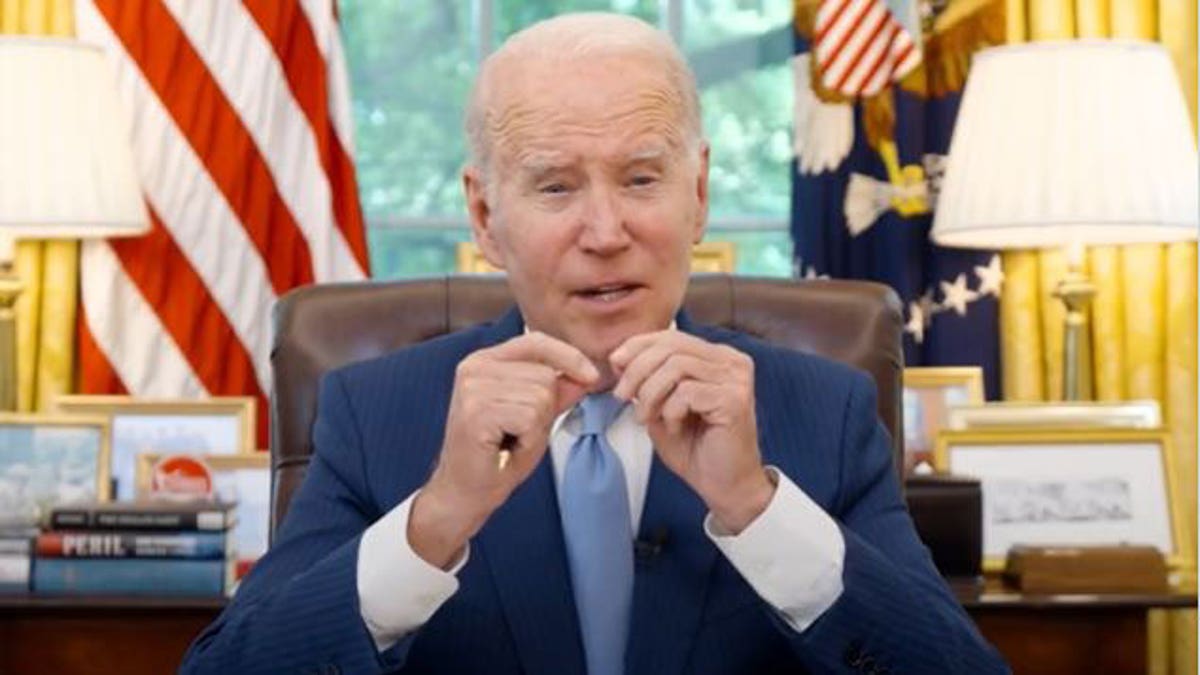Fox News Flash top headlines for December 20
Fox News Flash top headlines are here. Check out what's clicking on Foxnews.com.
The Biden administration continues to cancel billions in student loans despite the Supreme Court’s rejection of the president’s plan to forgive up to $430 billion in student debt. The White House just announced another $4.8 billion tranche of forgiven loans for 83,000 individuals, a gift of nearly $60,000 per borrower. This brings the total cancelations since Biden took office to $132 billion for some 3.6 million Americans.
The deficit impact of these cancelations is mitigated somewhat because U.S. tax law treats debt forgiven under income-driven student loan repayment plans as taxable income. However, the American Rescue Plan Act of 2021 (ARPA) temporarily exempted these plans from taxation through 2025, providing borrowers with a second windfall. Some lawmakers have proposed permanently excluding all canceled loans from tax.
Forgiving student loans and the resulting tax liability is bad policy. But the bigger windfall is the tax exemption for public and private colleges and universities, the very institutions that pocketed the $132 billion in tuition those loans financed.
MILLIONS OF STUDENT LOAN BORROWERS STILL AREN'T PAYING THEIR BILLS
Universities have used their tax-exempt status to become big businesses, and they should be taxed as such. According to Department of Education data, private colleges and universities took in $237 billion in revenue during the 2019-2020 school year and ended the year with a surplus of $14 billion.

President Joe Biden's foolish plan to cancel student loan debt is only one of the financial problems involving higher education. (White House)
Public universities — four-year and two-year — took in $428 billion and enjoyed a surplus of $104 billion. Combined, private and public university revenues totaled $665 billion, all effectively exempt from the tax code.
Because these institutions have been granted tax-exempt status, they do not pay federal income taxes on the income they receive from tuition payments, ticket sales, patent royalties and TV broadcast revenues.
In addition to being exempt from federal income taxes, public and private colleges and universities are frequently exempt from state income taxes, sales taxes and local property taxes. They can also take advantage of tax-free bonds.
Despite their "charitable" status under section 501(c)(3) of the income tax code, private universities received a mere 13% of their overall income from alumni donations and gifts in 2019.
Public universities, which have historically been exempted from tax because they were considered extensions of state and local governments, received a paltry 3% of their total income in 2019 from donations, capital grants and additions to their endowments.
For many nonprofit and public four-year universities, revenue from affiliated hospital operations and technology transfer programs has become key to the bottom line.
CLICK HERE FOR MORE FOX NEWS OPINION
For nonprofit universities, revenue from hospital operations more than doubled as a share of income, from 6% in 2010 to 14% in 2019, and now comprises a greater share than is generated from private gifts, grants, and contracts. For public universities, hospital revenues composed 16% of revenues in 2019, nearly as much as the share of income generated by tuition (20%).
Thanks to the Bayh-Dole Act of 1980, universities can cash in on the patents and inventions generated by government research grants. According to AUTM, which tracks technology transfers by universities, revenues from patent and trademark licenses have roughly doubled over the past two decades, to nearly $3 billion in 2020 from $1.5 billion in 2000.
Forgiving student loans and the resulting tax liability is bad policy. But the bigger windfall is the tax exemption for public and private colleges and universities, the very institutions that pocketed the $132 billion in tuition those loans financed.
Universities are also turning into sports and entertainment companies. The five major college sports leagues plus the NCAA generated $3.5 billion in revenues from broadcast contracts and licensing in 2022, which were then distributed to their member schools.
CLICK HERE TO GET THE FOX NEWS APP
Because these collegiate sports leagues are considered 501(c)(3) nonprofit organizations, this income is tax-exempt. Furthermore, since the TV networks can deduct their payments for broadcast rights as business expenses, this income is fully exempt from federal income tax.
The question for lawmakers is this: if colleges and universities generate more income from TV contracts, hospitals and licensing than alumni donations, should they rightfully be considered "charities?" If not, perhaps it is time to end the nonprofit charade and tax them as the mega-businesses they have become.


